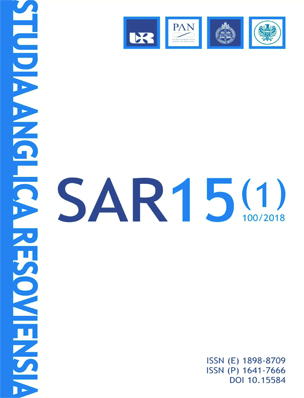Scaffolding by Means of Scientific Concepts: A Teacher-guided Peer Response Activity
DOI:
https://doi.org/10.15584/sar.2018.15.1.8Keywords:
writing instruction, peer response, scaffolding, scientific concepts, cognitive mediationAbstract
The paper analyzes the performance of a university student on a peer response activity which is part of an assignment in a writing course for second-year students of English philology. With Vygotsky’s (1987) doctrine of scientific concepts as a lens, it looks at how in the course of the peer response activity the teacher and the students support one another in their respective attempts to teach and learn writing. Teacher support on tasks, known as scaffolding (e.g. Stone 1998), is based on the idea that instruction should provide for transfer of responsibility for a complex task from teacher to student (Vygotsky 1978; Wood, Bruner, & Ross 1976). Adopting the Vygotskian perspective, I explain how in a teacher-guided peer response activity, student writers learn to verbalize their procedural how-to-write knowledge and to talk about their writing in order to regulate one another’s writing performance so that it meets the requirements of the assignment. The data help to substantiate the claim that experience in regulating others is the basis for the development of self-regulation by indicating how the language (scientific concepts) provided for use by students in the peer response activity can contribute to developing their self-regulated writing. For the teacher, a student’s performance on the peer response activity is a source of information on how to further assist the student in her/his development of the scientific concepts that mediate writing development.Downloads
Download data is not yet available.
Downloads
Published
2018-06-15
How to Cite
Zalewski, J. (2018). Scaffolding by Means of Scientific Concepts: A Teacher-guided Peer Response Activity. Studia Anglica Resoviensia, 15(1), 114–125. https://doi.org/10.15584/sar.2018.15.1.8
Issue
Section
Articles
License
Copyright (c) 2018 Studia Anglica Resoviensia

This work is licensed under a Creative Commons Attribution-NonCommercial 4.0 International License.

